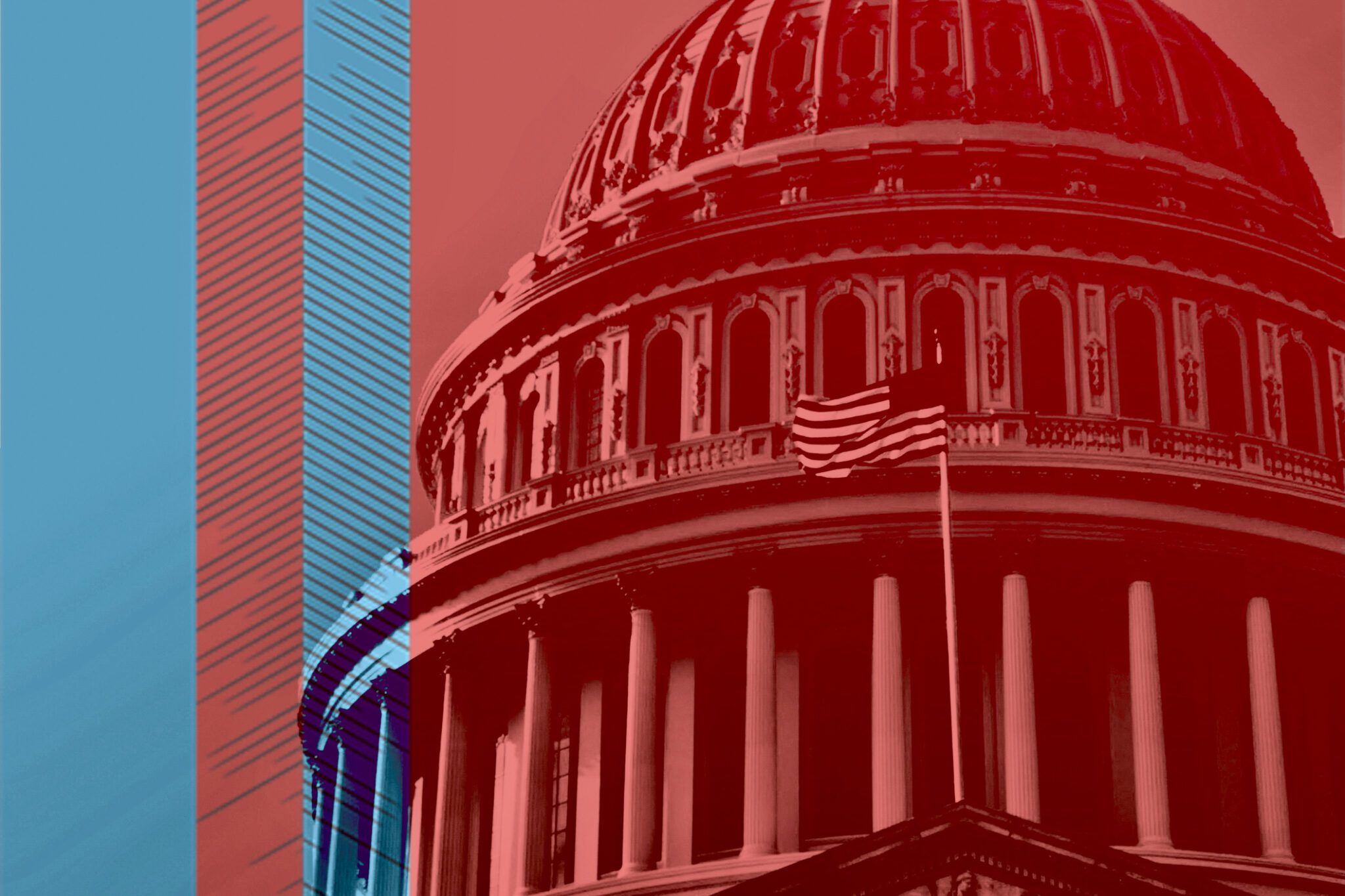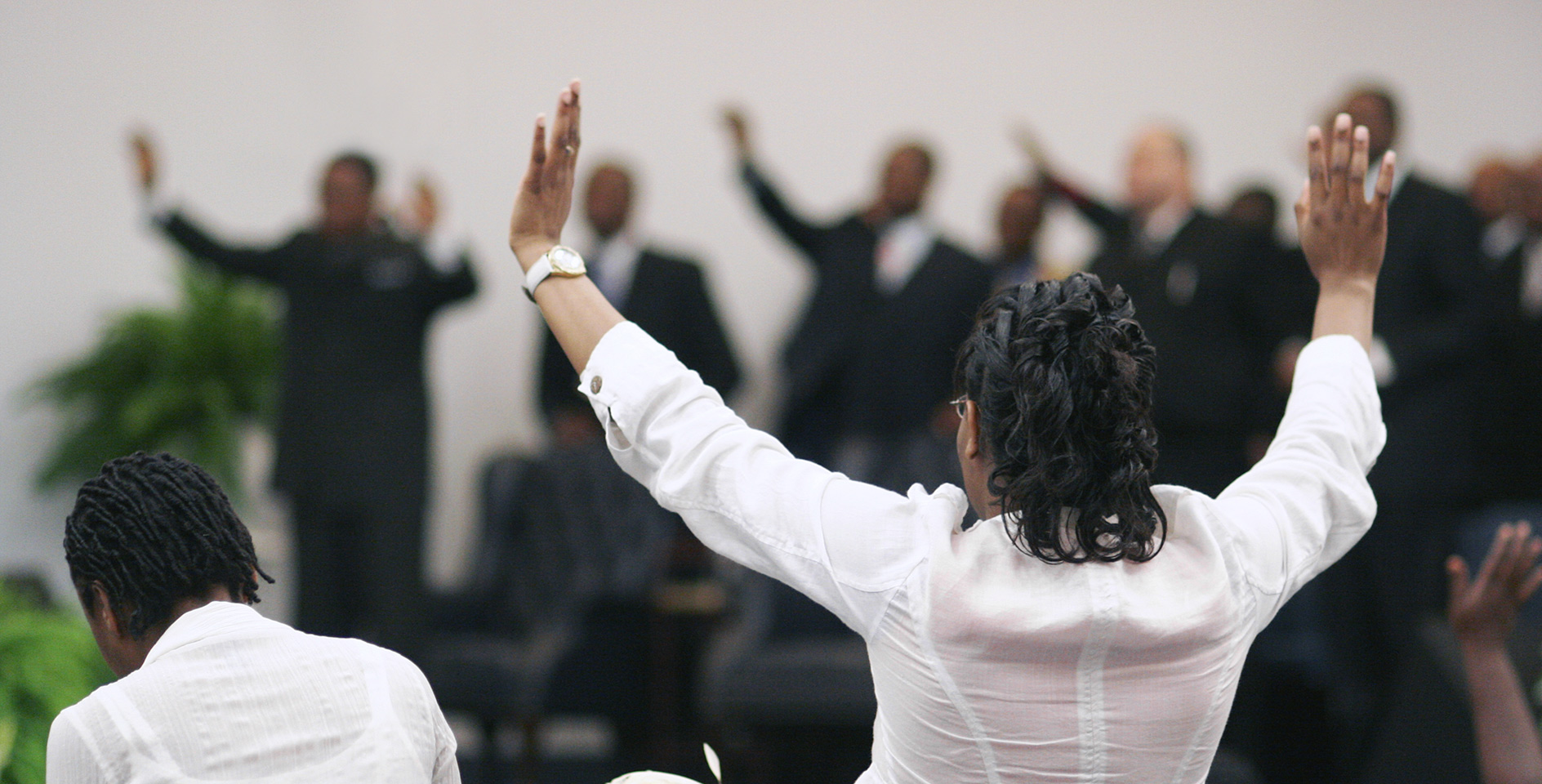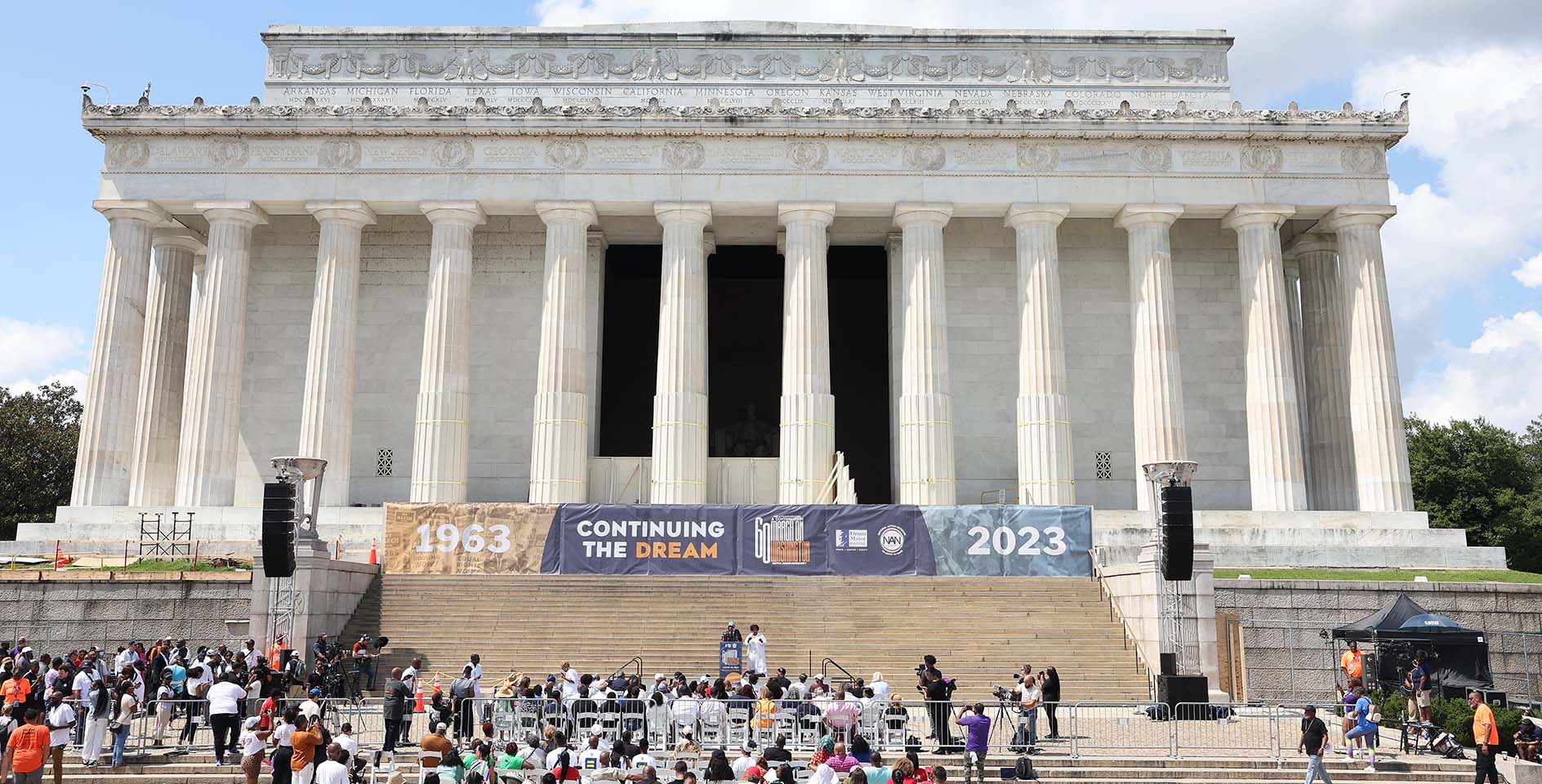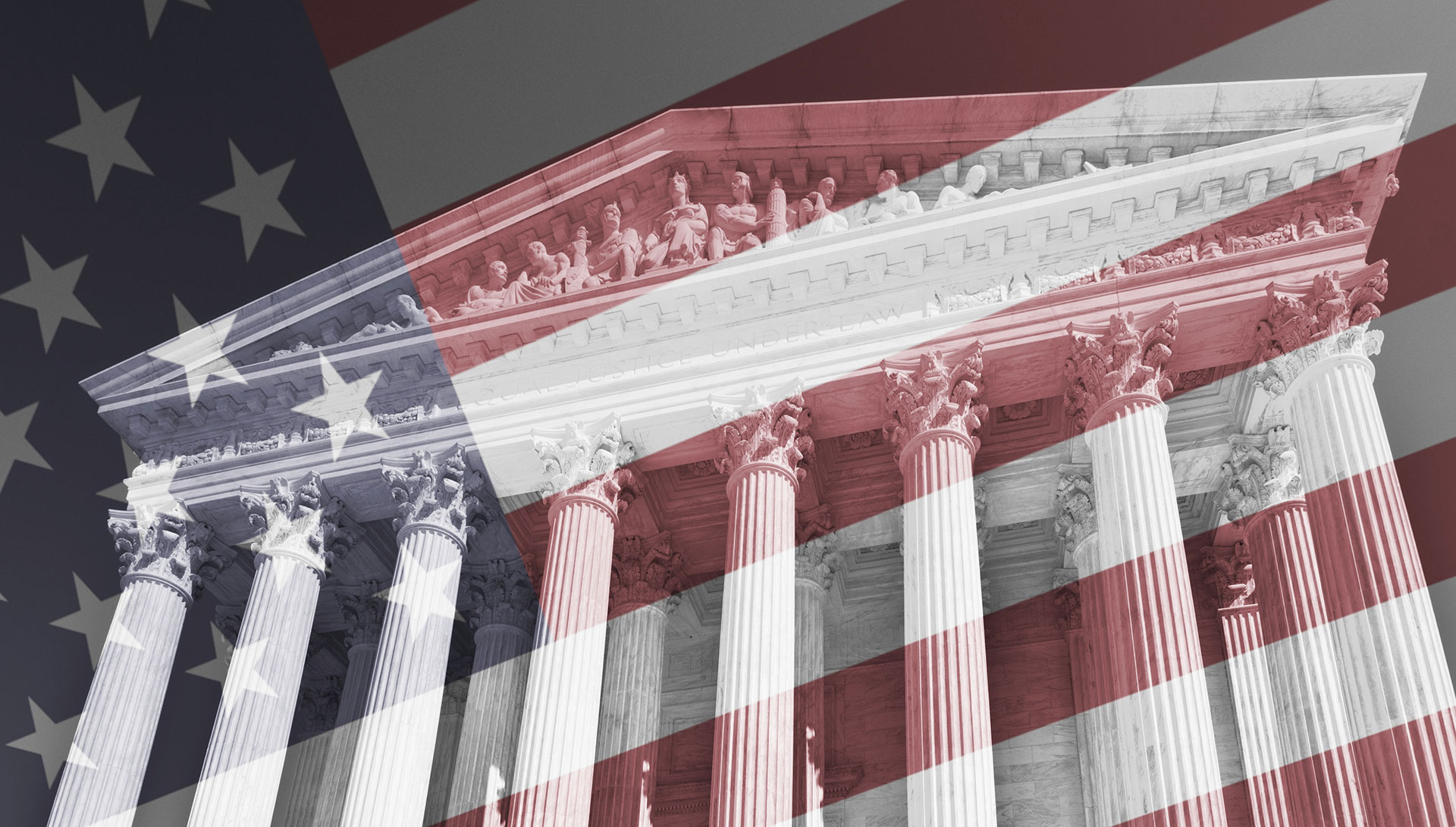The church is central to the story of black history in the United States. In Reading While Black, Dr. Esau McCaulley unpacks the many ways Scripture has been a resource for hope, perseverance, and justice in the African American experience. In spite of the dynamic role the black church has played in American history, its theological and historical significance is often understated. That is why this month we are taking a look at Dr. McCaulley’s book to further explore how the method of interpretation and reading Scripture has been an act of hope grounded in scriptural authority and the hope of the gospel
Here are select quotes from Reading While Black: African American Biblical Interpretation as an Exercise in Hope.
I am referring to the struggle between Black nihilism and Black hope. I am speaking of the ways in which the Christian tradition fights for and makes room for hope in a world that tempts us toward despair. I contend that a key element in this fight for hope in our community has been the practice of Bible reading and interpretation coming out of the Black church. p. 3
I want to contend that the best instincts of the Black church tradition—its public advocacy for justice, its affirmation of the worth of Black bodies and souls, its vision of a multiethnic community of faith—can be embodied by those who stand at the center of this tradition. This is a work against the cynicism of some who doubt that the Bible has something to say; it is a work contending for hope. p. 6
My professors had a point. One does not have to dig very far into history to see that fundamentalist Christians in the South (and the North) have indeed inflicted untold harm on Black people. They have used the Bible as justification for their sins, personal and corporate. But there is a second testimony possibly more important than the first. That is the testimony of Black Christians who saw in that same Bible the basis for their dignity and hope in a culture that often denied them both. In my professor’s attempt to take the Bible away from the fundamentalists, he also robbed the Black Christian of the rock on which they stood. p. 8.
I learned that too often alongside the four pillars of evangelicalism outlined above there were unspoken fifth and sixth pillars. These are a general agreement on a certain reading of American history that downplayed injustice and a gentlemen’s agreement to remain largely silent on current issues of racism and systemic injustice. p. 11
While I was at home with much of the theology in evangelicalism, there were real disconnects. First, there was the portrayal of the Black church in these circles. I was told that the social gospel had corrupted Black Christianity. Rather than placing my hope there, I should look to the golden age of theology, either at the early years of this country or during the postwar boom of American Protestantism. But the historian in me couldn’t help but realize that these apexes of theological faithfulness coincided with the nadirs of Black freedom. p. 11
The first ray of hope came from Frederick Douglass, whose words came to be something of a Balm in Gilead. He said,
What I have said respecting and against religion, I mean strictly to apply to the slaveholding religion of this land, and with no possible reference to Christianity proper; for, between the Christianity of this land, and the Christianity of Christ, I recognize the widest possible difference. . . . I love the pure, peaceable, and impartial Christianity of Christ: I therefore hate the corrupt, slaveholding, women-whipping, cradle-plundering, partial and hypocritical Christianity of this land.
Frederick then posits a distinction, not so much between Black Christianity and white, but between slaveholder religion and the Christianity of Jesus and the Bible.
Black Christianity historically, I would come to understand, has claimed that white slave master readings of the Bible used to undergird white degradation of Black bodies were not merely one manifestation of Christianity to be contrasted with another. Instead they said that such a reading was wrong. p. 16-17
Therefore, I contend that the enslaved person’s biblical interpretation, which gave birth to early Black biblical interpretation, was canonical from its inception. It placed Scripture’s dominant themes in conversation with the hopes and dreams of Black folks. It was also unabashedly theological, in that particular texts were read in light of their doctrine of God, their beliefs about humanity (anthropology) and their understanding of salvation (soteriology). p. 19
My claim then is that Black biblical interpretation has been and can be
- unapologetically canonical and theological.
- socially located, in that it clearly arises out of the particular context of Black Americans.
- willing to listen to the ways in which the Scriptures themselves respond to and redirect Black issues and concerns.
- willing to exercise patience with the text trusting that a careful and sympathetic reading of the text brings a blessing.
- willing to listen to and enter into dialogue with Black and white critiques of the Bible in the hopes of achieving a better reading of the text. p. 21
Peacemaking, then, cannot be separated from truth telling. The church’s witness does not involve simply denouncing the excesses of both sides and making moral equivalencies. It involves calling injustice by its name. If the church is going to be on the side of peace in the United States, then there has to be an honest accounting of what this country has done and continues to do to Black and Brown people. Moderation or the middle ground is not always the loci of righteousness. p. 68
The question isn’t always which account of Christianity uses the Bible. The question is which does justice to as much of the biblical witness as possible. There are uses of Scripture that utter a false testimony about God. This is what we see in Satan’s use of Scripture in the wilderness. The problem isn’t that the Scriptures that Satan quoted were untrue, but when made to do the work that he wanted them to do, they distorted the biblical witness. This is my claim about the slave master exegesis of the antebellum South. The slave master arrangement of biblical material bore false witness about God. This remains true of quotations of the Bible in our own day that challenge our commitment to the refugee, the poor, and the disinherited. p. 91
The Black Christian is often beset from the left and the right. Those on the right too often contend that the Bible speaks to their souls and not the liberation of their bodies. Those on the left maintain that those on the right are correct. The Bible doesn’t clearly address the needs of Black and Brown folks. Therefore, it must either be supplemented or replaced. I am not claiming that the Bible outlines the policies necessary for the proper functioning of a Democratic Republic. I am saying that it outlines the basic principles and critiques of power that equip Black Christians for their life and work in these United States. p. 94-95
God’s vision for his people is not for the elimination of ethnicity to form a colorblind uniformity of sanctified blandness. Instead God sees the creation of a community of different cultures united by faith in his Son as a manifestation of the expansive nature of his grace. This expansiveness is unfulfilled unless the differences are seen and celebrated, not as ends unto themselves, but as particular manifestations of the power of the Spirit to bring forth the same holiness among different peoples and cultures for the glory of God. p. 106
There are two groups that want to separate us from the Christian story. One group claims that Christianity is fundamentally a white religion. This is simply historically false. The center of early Christianity was in the Middle East and North Africa. But deeper than the historical question is the biblical one. Who owns the Christian story as it is recorded in the texts that make up the canon? I have contended that Christianity is ultimately a story about God and his purposes. That is good news. God has always intended to gather a diverse group of people to worship him. p. 117
It is difficult for the African American believer to look deeply into the history of Christianity and not be profoundly shaken. Insomuch as it arises in response to the church’s historic mistreatment of African Americans, the Black secular protest against religion is one of the most understandable developments in the history of the West. If they are wrong (and they are), it is a wrongness born out of considerable pain. I too am frustrated with the way that Scripture has been used to justify the continual assault on Black bodies and souls. If we come to different conclusions about the solutions to those problems, it is not because Black Christians deny the past. It is simply that we found different solutions within the biblical witness to Black suffering and anger. We do not find fault with the broad center of the great Christian tradition. We lament its distortion by others and the ways in which we have failed to live up to the truths we hold dear. Nonetheless, we are not ashamed of finding hope and forgiveness in and through the cross of Christ. In the end, we plead and have confidence in the blood. p. 136
I argued that the Old and New Testaments, even the letters of Paul, provide us with the theological resources to dismantle slavery. It is simply false to claim that the Old and New Testaments simply baptize the institutions as they find them. Instead, the Scriptures raise tensions between the central themes of the Bible and slavery. p. 162
Alongside the vibrancy of evangelicalism, there was, in spirit if not always in practice, an emphasis on the equality of all people due to the belief that all were sinners in need of God’s grace. The equal need for grace spoke to the equal worth of Black bodies and souls, making conversion to this form of Christianity a realistic possibility. Furthermore, the flexible polities of Baptist and later Methodist churches made it easier for African Americans to form their own independent churches and denominations when racism forced them out of white churches. Here in these newly formed Black churches and denominations we have our first extensive record of the Black encounter with the Bible. p. 169
The emphasis on the Bible in evangelical circles spurred on the Black desire for literacy. Learning to read the Bible helped expand the world and imagination of slaves, making them more difficult to control. This led to attempts to limit Bible reading among slaves out of fear it might cause rebellion. Slave masters’ fear of the Bible must bear some indirect testimony to what the slave masters thought it said. Part of them knew that their exegetical conclusions could only be maintained if the enslaved were denied firsthand experience of the text. This is evidence to my mind that Bible reading was itself an act against despair and for hope. p. 170
Most Black writers from this period saw in the texts of the Old and New Testament a message calling for liberation from actual slavery. This call for the end of slavery did not mean that they neglected personal salvation from sin. This call for individual and societal transformation within the context of the historic confessions of Christianity is what I came to think of as the mainstream or at least a significant strand of the Black ecclesial tradition. p. 171
The witness of the traditional black church in the United States testifies to the power of the Gospel and the sufficiency of Scripture. Reading While Black is an excellent resource to better understand how the black church has utilized Scripture to make sense of the many joys and challenges of the African American experience.











